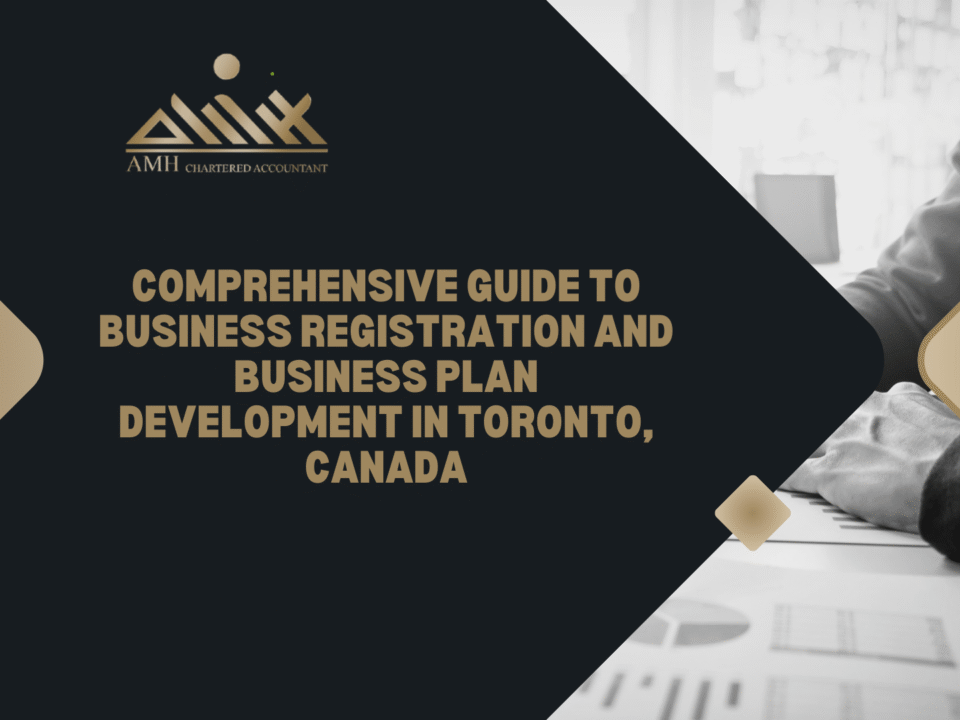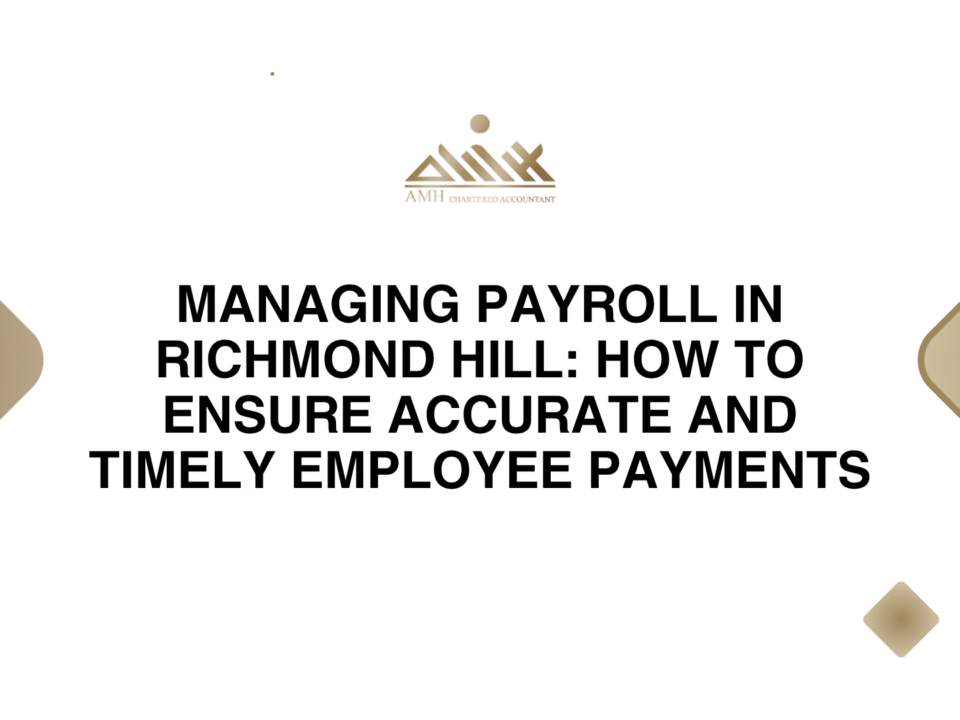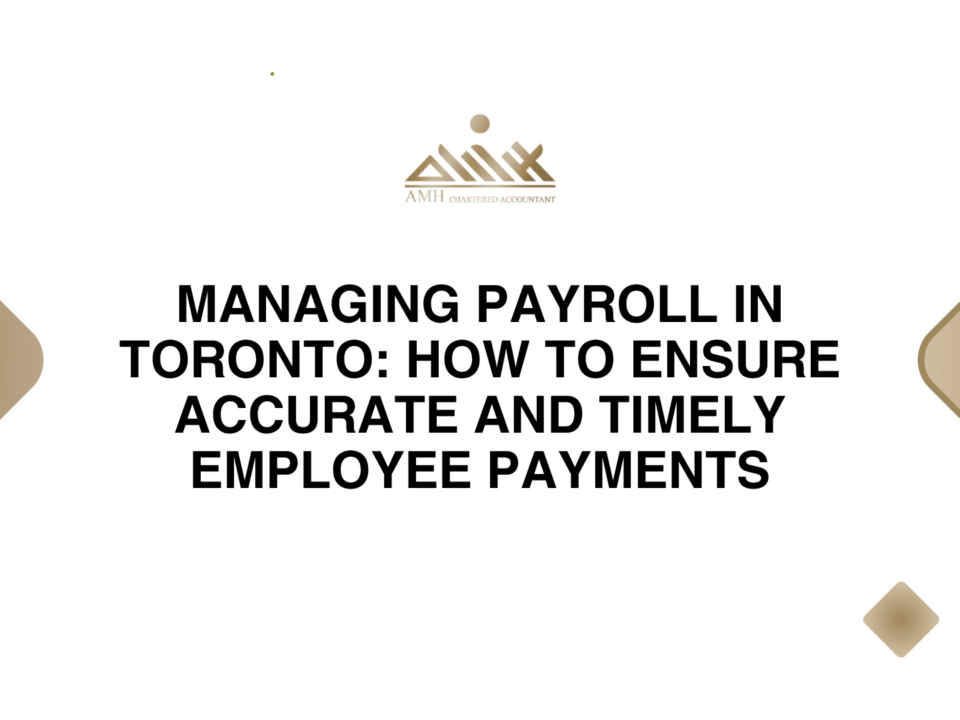
Payroll Management Made Simple: Compliance and Clarity for Employers
July 3, 2025
In-House vs. Outsourced Accounting: What’s Best for Your Business?
July 7, 20255 Common Bank Reconciliation Mistakes and How to Avoid Them
Bank reconciliation is a crucial part of business accounting, but it’s easy to make mistakes that can lead to inaccurate financial reporting and mismanagement of funds. Here are five common mistakes that businesses make during bank reconciliation and expert tips on how to avoid them, provided by AMH Chartered Professional Accountant.
Introduction: The Importance of Accurate Bank Reconciliation
For any business, maintaining accurate financial records is critical to success. One of the key elements in ensuring your financial statements reflect your true business position is bank reconciliation. This process helps confirm that your company’s records match those of your bank, ensuring that all transactions are accounted for and discrepancies are resolved.
However, despite its importance, businesses often make common mistakes when reconciling their bank accounts. These errors can lead to financial misstatements, cash flow problems, and even missed opportunities for cost savings or tax benefits. In this article, AMH Chartered Professional Accountant offers expert insights on the five most common bank reconciliation mistakes and provides practical advice on how to avoid them.
What is Bank Reconciliation?
Bank reconciliation is the process of matching the company’s general ledger account (or cash book) with the bank statement. The purpose of this process is to ensure that all transactions, including deposits, withdrawals, bank fees, and interest, are recorded accurately in both the company’s records and the bank’s records.
During the reconciliation process, any discrepancies between the two sets of records are identified, investigated, and corrected. This ensures that your company’s financial position is accurate, that you’re aware of any outstanding transactions, and that you can maintain a healthy cash flow.
Why Bank Reconciliation Matters for Your Business
Accurate bank reconciliation is essential for several reasons:
Financial Accuracy: Bank reconciliation ensures your records are up-to-date and accurate, reducing the chances of financial misstatements.
Cash Flow Management: By reconciling your bank accounts, you can track available funds, ensuring you don’t overspend or miss important payments.
Fraud Prevention: Regular reconciliation helps identify discrepancies, such as unauthorized withdrawals, preventing fraud or theft.
Tax Compliance: Accurate records make tax preparation easier and ensure compliance with tax regulations.
Clear Financial Picture: A consistent reconciliation process provides transparency, helping you make better financial decisions and attract investors.
5 Common Bank Reconciliation Mistakes and How to Avoid Them
While bank reconciliation is crucial, several mistakes can occur during the process. Below are the five most common errors businesses make and how to avoid them.
Mistake 1: Failing to Reconcile Regularly
One of the most common mistakes is failing to perform regular bank reconciliations. Many businesses only reconcile their bank statements at the end of the year or quarterly, leaving room for errors to accumulate.
How to Avoid This Mistake:
Reconcile Monthly: At a minimum, reconcile your bank accounts monthly. This ensures that discrepancies are caught early and allows you to correct them before they cause major issues.
Set a Schedule: Create a regular schedule for bank reconciliation. This habit will help you stay organized and ensure that the process becomes part of your routine.
Use Automated Tools: Implement accounting software that automatically imports and matches transactions, simplifying the reconciliation process.
By making bank reconciliation a regular part of your routine, you’ll ensure that your financial records are always up to date and accurate.
Mistake 2: Ignoring Bank Fees or Charges
Bank fees and charges, such as monthly maintenance fees, transaction fees, or overdraft charges, are often overlooked during the reconciliation process. These fees can accumulate over time and lead to discrepancies if not recorded properly.
How to Avoid This Mistake:
Review Bank Statements Carefully: Always review your bank statement for any fees or charges that may have been applied, and make sure they are recorded in your general ledger.
Update Your Financial Records: When you spot a bank fee or charge, update your financial records immediately to ensure that your cash balance is accurate.
Factor Fees Into Your Budget: Be aware of recurring fees and factor them into your business’s cash flow management.
By paying attention to these often-overlooked items, you can ensure that your bank reconciliation is accurate and complete.
Mistake 3: Misclassifying Transactions
Another common mistake in bank reconciliation is misclassifying transactions. For example, a business might incorrectly categorize a payment as an expense instead of an asset or vice versa. This can lead to inaccurate financial reports and make it difficult to track expenses accurately.
How to Avoid This Mistake:
Use Clear and Consistent Categories: Establish clear categories for different types of transactions, and ensure they are consistently applied in both the bank and general ledger.
Double-Check Entries: When entering transactions into your accounting system, always double-check the classification to ensure it matches the nature of the transaction.
Consult with Your Accountant: If you’re unsure about how to classify a particular transaction, consult with an accountant to avoid errors in your financial reporting.
By ensuring that transactions are accurately classified, you can prevent errors that may distort your company’s financial picture.
Mistake 4: Forgetting to Account for Outstanding Checks
When reconciling your bank account, it’s common to forget about outstanding checks (checks that have been written but not yet cashed). These can result in a temporary discrepancy between your bank statement and your records.
How to Avoid This Mistake:
Track Outstanding Checks: Always keep track of any checks you’ve written but that have not yet cleared. Include them in your reconciliation as “outstanding” items.
Reconcile With Adjustments: When you reconcile, subtract the amount of outstanding checks from your book balance and adjust accordingly.
Monitor Uncashed Checks: Regularly follow up on checks that have not been cashed, especially if they are long overdue.
By keeping track of and adjusting for outstanding checks, you can ensure that your reconciliation is more accurate and reflect the true financial position of your business.
Mistake 5: Not Reconciling Bank and Credit Card Statements Separately
Many businesses combine their bank and credit card statements during the reconciliation process, but this can lead to errors. Bank transactions and credit card transactions are separate, and failing to reconcile them separately can create confusion.
How to Avoid This Mistake:
Separate Bank and Credit Card Reconciliation: Always reconcile your bank account and credit card accounts separately. Treat credit card payments as liabilities and make sure they are reconciled correctly.
Ensure Proper Categorization: When reconciling your credit card statement, ensure that any business expenses made through the credit card are properly categorized in your accounting system.
Use Software for Automation: Accounting software can help automate the reconciliation of both your bank and credit card accounts, ensuring accuracy and efficiency.
By keeping your bank and credit card reconciliations separate, you’ll have a clearer picture of your business’s cash flow and liabilities.
How AMH Chartered Professional Accountant Helps with Bank Reconciliation
At AMH Chartered Professional Accountant, we understand the challenges of maintaining accurate financial records. Our team is here to help businesses like yours ensure a smooth and error-free reconciliation process.
Here’s how we can assist you:
Bank Reconciliation Services: We offer professional reconciliation services to ensure that your financial records match your bank statements.
Software Integration: We can help integrate accounting software to automate the reconciliation process, saving you time and reducing errors.
Expert Guidance: Our team provides expert guidance on best practices for managing your finances and avoiding common reconciliation mistakes.
Let AMH Chartered Professional Accountant handle the complexities of bank reconciliation, so you can focus on growing your business.
Best Practices for a Smooth Bank Reconciliation Process
To ensure that your bank reconciliation process runs smoothly every month, consider these best practices:
Keep Your Records Updated: Regularly update your accounting system to ensure that all transactions are recorded promptly.
Use Reconciliation Software: Implement accounting software that automates much of the process and reduces manual errors.
Reconcile Early: Don’t wait until the end of the month to reconcile your accounts. Doing it earlier can help you catch errors sooner.
Stay Organized: Keep your receipts, invoices, and bank statements organized to make the reconciliation process easier.
Create a Routine: Set a specific time each month to complete the reconciliation process, making it a consistent part of your accounting workflow.
Automating Your Bank Reconciliation Process with AMH’s Support
At AMH Chartered Professional Accountant, we offer solutions to automate your bank reconciliation process, making it more accurate and efficient. Using the latest tools and software, we can streamline your reconciliation process, reducing the chances of human error and giving you real-time financial insights.
Conclusion: Ensuring Financial Accuracy and Transparency
Bank reconciliation is a crucial task for maintaining the accuracy and integrity of your business’s financial records. By avoiding the common mistakes outlined above and following best practices, you can ensure that your financial data is accurate and transparent. Whether you’re a small business in Toronto or a larger company in the GTA, AMH Chartered Professional Accountant is here to help you manage your bank reconciliation process and keep your financial health in check.
FAQs
Why is bank reconciliation important for my business?
Bank reconciliation helps ensure that your financial records match your bank’s records, which improves accuracy, prevents fraud, and supports informed decision-making.
How often should I reconcile my bank accounts?
Ideally, you should reconcile your bank accounts on a monthly basis. This helps catch any discrepancies early and ensures that your financial data is always up to date.
Can AMH help me automate my bank reconciliation process?
Yes, we offer services to help integrate accounting software that automates the bank reconciliation process, saving you time and minimizing errors.
What if I find discrepancies during reconciliation?
If discrepancies arise, it’s important to investigate and resolve them promptly. AMH can assist with identifying the source of discrepancies and correcting them.
Can I do my bank reconciliation manually?
Yes, but using accounting software can significantly streamline the process, reduce errors, and provide real-time insights into your financial position.




